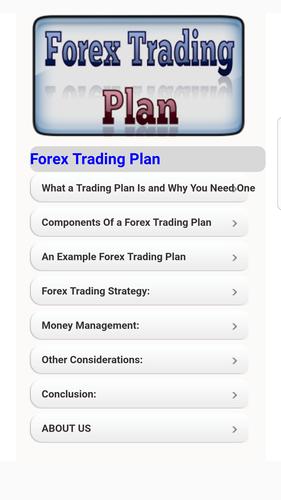
Demo traders can give you valuable experience and knowledge in the Forex market. After a point, it becomes unusable and a burden. Fortunately, you can still use it to help you learn the ins and outs of trading without risking your real money. Here are some tips for maximizing the potential of this software:
Trading with virtual cash
Demo accounts on certain trading platforms allow you practice your trades with real money. The Think or Swim platform, offered by TD Ameritrade, allows virtual money to be traded and provides advanced trading tools. NinjaTrader offers one of these options. NinjaTrader provides simulation tools to help traders practice strategies and also offers a virtual currency marketplace. It's a great alternative for aspiring traders who aren’t sure how much risk there is in trading with real funds.

Position size
Trading is all about being able to adjust your position size. This is one of the most important tools you can use to increase your chances of success. A trader who only risks 20% of his capital will struggle to stay calm and act quickly. He will likely feel immense stress and panic when the position moves against them, and will likely close out the position as soon the position becomes profitable. A trader who takes only one percent of the capital risk will likely remain calm and collected even though the position is in his favor.
Slippage
Slippage refers to the difference in price between an order's closing price and its entry price. Slippage can pose a problem in live trading because it could interfere with your trading plan. Slippage can also cause you to lose more and reduce your profits. Slippages in demo trading tend to be rare. Here are some reasons why slippage occurs in demo accounts. Read on to learn how to prevent it.
Trading environment
Demo traders can simulate the trading conditions of a live environment. This means that all trades you make for spreads will be executed. The difference between live trading and a demo trading environment is that live trading is subject to market availability and spreads increase the actual costs of trading. Moreover, the spreads and data feeds of demo accounts may differ from those of live trading.

Trading strategies
There are some key differences between demo trading and live trading. Live trading involves real money. Demo accounts do not. But they need to follow risk management strategies in an effort not to lose money. Demo account traders have the ability to make mistakes and not lose any real money. They can update their trading journals and practice risk management tools before they begin real trading. New traders can also practice big transactions in demo trading without real risk.
FAQ
What are the pros of investing through a Mutual Fund?
-
Low cost - buying shares directly from a company is expensive. A mutual fund can be cheaper than buying shares directly.
-
Diversification – Most mutual funds are made up of a number of securities. If one type of security drops in value, others will rise.
-
Professional management – professional managers ensure that the fund only purchases securities that are suitable for its goals.
-
Liquidity: Mutual funds allow you to have instant access cash. You can withdraw the money whenever and wherever you want.
-
Tax efficiency- Mutual funds can be tax efficient. Because mutual funds are tax efficient, you don’t have to worry much about capital gains or loss until you decide to sell your shares.
-
No transaction costs - no commissions are charged for buying and selling shares.
-
Easy to use - mutual funds are easy to invest in. All you need is a bank account and some money.
-
Flexibility – You can make changes to your holdings whenever you like without paying any additional fees.
-
Access to information - You can view the fund's performance and see its current status.
-
You can ask questions of the fund manager and receive investment advice.
-
Security - You know exactly what type of security you have.
-
You can take control of the fund's investment decisions.
-
Portfolio tracking: You can track your portfolio's performance over time.
-
Easy withdrawal - it is easy to withdraw funds.
There are disadvantages to investing through mutual funds
-
Limited selection - A mutual fund may not offer every investment opportunity.
-
High expense ratio - Brokerage charges, administrative fees and operating expenses are some of the costs associated with owning shares in a mutual fund. These expenses will eat into your returns.
-
Lack of liquidity: Many mutual funds won't take deposits. They must be purchased with cash. This limits the amount that you can put into investments.
-
Poor customer service. There is no one point that customers can contact to report problems with mutual funds. Instead, you need to contact the fund's brokers, salespeople, and administrators.
-
Rigorous - Insolvency of the fund could mean you lose everything
How does inflation affect the stock market?
Inflation has an impact on the stock market as investors have to spend less dollars each year in order to purchase goods and services. As prices rise, stocks fall. This is why it's important to buy shares at a discount.
What's the role of the Securities and Exchange Commission (SEC)?
The SEC regulates securities exchanges, broker-dealers, investment companies, and other entities involved in the distribution of securities. It also enforces federal securities laws.
Statistics
- US resident who opens a new IBKR Pro individual or joint account receives a 0.25% rate reduction on margin loans. (nerdwallet.com)
- Ratchet down that 10% if you don't yet have a healthy emergency fund and 10% to 15% of your income funneled into a retirement savings account. (nerdwallet.com)
- Individuals with very limited financial experience are either terrified by horror stories of average investors losing 50% of their portfolio value or are beguiled by "hot tips" that bear the promise of huge rewards but seldom pay off. (investopedia.com)
- "If all of your money's in one stock, you could potentially lose 50% of it overnight," Moore says. (nerdwallet.com)
External Links
How To
How to create a trading plan
A trading plan helps you manage your money effectively. This allows you to see how much money you have and what your goals might be.
Before you begin a trading account, you need to think about your goals. You might want to save money, earn income, or spend less. You may decide to invest in stocks or bonds if you're trying to save money. If you are earning interest, you might put some in a savings or buy a property. Maybe you'd rather spend less and go on holiday, or buy something nice.
Once you have an idea of your goals for your money, you can calculate how much money you will need to get there. This will depend on where and how much you have to start with. It is also important to calculate how much you earn each week (or month). Your income is the amount you earn after taxes.
Next, you will need to have enough money saved to pay for your expenses. These expenses include rent, food, travel, bills and any other costs you may have to pay. Your monthly spending includes all these items.
Finally, you'll need to figure out how much you have left over at the end of the month. This is your net discretionary income.
This information will help you make smarter decisions about how you spend your money.
To get started with a basic trading strategy, you can download one from the Internet. Ask someone with experience in investing for help.
Here's an example: This simple spreadsheet can be opened in Microsoft Excel.
This displays all your income and expenditures up to now. Notice that it includes your current bank balance and investment portfolio.
And here's another example. This was designed by a financial professional.
It shows you how to calculate the amount of risk you can afford to take.
Don't attempt to predict the past. Instead, put your focus on the present and how you can use it wisely.